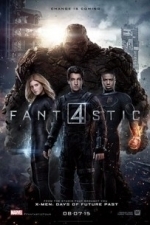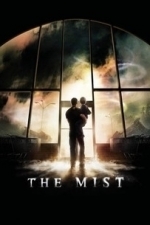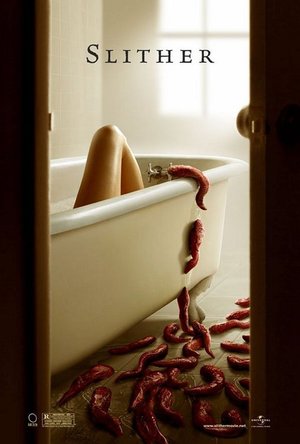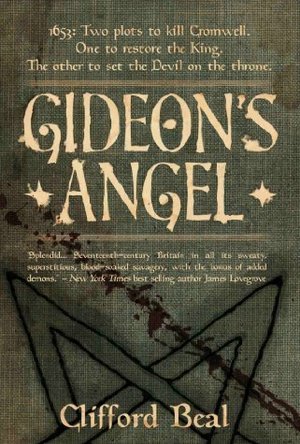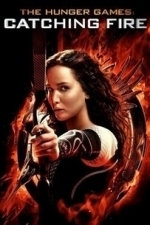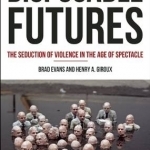
Disposable Futures: The Seduction of Violence in the Age of Spectacle
Brad Evans and Henry A. Giroux
Book
"This is a must-read book for anyone ready to transcend fear and imagine a new reality."--Tikkun...

VocaLive for iPad
Music and Photo & Video
App
*** “MIC ROOM” MICROPHONE MODELING, SIMULTANEOUS MULTI-TRACK RECORDING, 4-TRACK LOOPER ADDED IN...

VocaLive FREE for iPad
Music and Photo & Video
App
*** “MIC ROOM” MICROPHONE MODELING, SIMULTANEOUS MULTI-TRACK RECORDING, 4-TRACK LOOPER ADDED IN...

VocaLive FREE
Music and Photo & Video
App
*** “MIC ROOM” MICROPHONE MODELING, SIMULTANEOUS MULTI-TRACK RECORDING, 4-TRACK LOOPER ADDED IN...
Gareth von Kallenbach (980 KP) rated Fantastic Four (2015) in Movies
Jun 19, 2019
The previous two films did well enough but still had their detractors amongst the fans. So, Fox opted for a hiatus and then a radical reboot of the series complete with casting choices that were considered very questionable.
The new version features Miles Teller as Reed Richards, a young man obsessed with teleportation to the point that his teachers and other students laugh at him for his odd and obsessive ways.
His only friend is Ben Grimm (Jamie Bell), who despite a lack of scientific knowledge supports Reed in his efforts which eventually allow him to be recruited by Dr. Franklin Storm (Reg E. Cathey), who discloses that he is working on a large scale teleportation device and seeing how Reed pulled it off with a device he made in his garage, is eager to see what he can do at a fully-funded facility.
Reed meets Franklins adopted daughter Sue (Kate Mara), as well as his son Johnny (Michael B. Jordan), while they work with the mercurial Victor Von Doom (Toby Kebbell), to complete the device.
When the team finds success, they are horrified to learn that the government plans to take over control of the project so Ben, Victor, Johnny, and Reed opt to use it themselves to visit the other dimension in order to leave their mark in history.
Things at first go well but when a mysterious force envelops them, odd things start to happen when they return home. Reed is capable of stretching himself, Johnny is a living fire, Ben is covered in rocks, and Sue is phasing in and out.
Flashing forward the group is under the watch of the government and Reed has fled not wanting to be a part of whatever is going on. Ben is used for special operations and blames Reed for abandoning them as Sue and Johnny are prepped for the field.
Now one would think a setup like this has some potential at the very least for some action and great FX. Sadly the film lurches ahead fairly light on action. The threat to the film appears, and within 10 minutes has moved to a fairly underwhelming final conflict that is so obviously done in front of a Green Screen that it loses much of the intended impact.
The best I can say for the film is that it is a forgettable and flawed film that tries to launch a new franchise in a new way. But the casting choices in the film are so wrong, that it undermines it at every step. Setting aside the debate over an African American Johnny Storm, Miles Teller is so bland; he just does not scream leading man or driving force behind the team.
The same can be said for pretty much the entire cast. The backstories hint at various things but their actions conflict several aspects of the film which to be honest are fairly forgettable.
The entire movie is like watching a Jr. College Fan Film where the cast has a Green Screen and studio funding, but not a clue on how to carry out a story, modern action sequences of character development.
Fox needs to take a serious page from Sony and work with Marvel if they are going to continue this franchise, or return the rights to Marvel so fans can finally get a film that does justice to the source material.
I am glad that Director Josh Trank is no longer associated with the pending Star Wars film as this movie is a train wreck that spits all over the history and legacy of the source material.
http://sknr.net/2015/08/07/the-fantastic-four/
Gareth von Kallenbach (980 KP) rated The Mist (2007) in Movies
Aug 14, 2019
As I moved on to other books and films, I never forgot the impact of the story, and for years wondered why nobody had attempted to bring the story to the screen. A few years later, I heard rumblings of an attempt to make a film version of the story with Michael J. Fox being listed as the intended lead.
While this never came to be, Frank Darabont who masterfully adapted King’s “The Green Mile” and “The Shawshank Redemption”, into solid films, took up the task of writing and directing “The Mist” and has done a solid job of translating the master story for the screen.
The film stars Thomas Jane as David Drayton, a movie poster artist who lives in a quiet Maine town in a nice house overlooking the water with his wife and son Billy (Nathan Gamble). The morning after a freak storm lays waste to the surrounding area, Frank and Billy set out for the store with their estranged neighbor Brent Norton (Andre Braugher).
When they arrive at the store, they find it packed with people who are trying to stock up on supplies following the storm. With the power, phones, and cell service being out, and military forces being deployed all around them, the town is in a state of chaos.
A man marked with blood suddenly emerges from an expanding mist that has formed over the town and claims that something in this mist has taken his friend. This event is punctuated with a warning siren that has started to sound, which leads the people in the store to lock the doors and seek shelter in the store.
Frank attempts to tell the people that there was something scraping against the back loading door, but his concerns are ignored with tragic results. Since this event was witnessed by only a small group of people, the residents trapped in the store quickly give in to their fears and star to accuse Frank of fabricating the situation, and locale crackpot Mrs. Carmody (Marcia Gay Harden), and blames their situation on Judgment Day and starts to convert people to her radical beliefs.
Things get even worse when creatures from the mist get into the store and attack the people which forces Frank and company to take a risky trip to the neighboring drug store in an attempt to gain much needed medical supplies.
In short order the situation gets even worse as Frank and his supporters are faced to contend not only with the creatures in the mist, but the growing threat from Mrs. Carmody and her fanatics who have adapted a mob mentality towards anyone they think is a non-believer.
What follows is a thrilling series of events that leads to one of the most shocking and memorable finale acts that will stay with you long after the film has ended.
There has been much made of the decision to add a proper ending to the story instead of the nebulous ending in the story where nothing was truly resolved. I think this decision was wise, as being a fan of the story; I was a bit frustrated that there was not final outcome in the story and I was left with more questions than answers when the story ended.
Darabont has crafted a finale that is sure to upset some people and please others, but credit has to be given for crafting an ending that does not take the standard Hollywood outs.
The cast is strong, and the FX and Gore are restrained to the point that they do not overshadow what is essentially a drama about people in an extra-ordinary situation, and what happens when the rules and creature comforts of society collapse.
While the film will not break new ground in the horror genre, it is one of the best adaptation of a King story, and is very entertaining.
Gareth von Kallenbach (980 KP) rated Slither (2006) in Movies
Aug 14, 2019
The film is set in a small southern town and features the usual mix of horror film stereotypes. There is the Chief of Police named Bill Pardy (Nathan Fillon) who watched over the sleepy town while secretly holding a torch for the lovely Starla Grant (Elizabeth Banks). The only issue is Starla’s older husband Grant (Michael Rooker), who is not only a very prosperous man, but took Starla in when she was younger and provided for her.
Of course there are also the stock characters of the loud and obnoxious Mayor of the town (Gregg Henry), who is more trouble than he is good and spouts a string of profanity and insensitive remarks that would make a Drill Instructor blush. Add to the mix the various assortments of yokels, deputies and towns folk, and you have a setting ripe for invasion.
The invasion arrives in the form of a meteor that breaks apart in the atmosphere save for a small segment that lands harmlessly in the woods. Unfortunately, an organism has hitched a ride on the meteor and in short order a parasitic organism has infected Grant causing him to exhibit odd behavior and have a ravenous desire for large amounts of meat in all forms.
Despite the changes, Grant still has his eye firmly on his wife and as the changes become more and more radical, he becomes even more fixated upon his wife.
Eventually Grant’s odd behavior and ongoing transformation has him on the run from the authorities who organize a manhunt to bring him in and end the carnage in his path.
Naturally things do not go as planned as before long there are hordes of slug like creatures unleashed upon the town whose entire purpose is to infect the town making zombies out of all who are infected.
As if all of this was not bad enough, Bill must figure out how to protect those uninfected people as well as search for a way to end the devastation at all cost.
Slither is a film that strives to blend horror and comedy but seems better suited to be a comedic send up of the horror genre. Unlike the “Scary Movie” series, it does not come in as a parody but rather presents itself as a horror film, yet one that seems devoid of any real suspense or frights. There is plenty of gore, violence, and other mayhem in the film, but at my advanced screenings the vast majority of the film garnered laughs from the audience rather than shrieks.
Since there were several segments of the film that were obviously intended to create laughs such as the zombie family trying to coax their uninfected daughter out of hiding by proclaiming she is missing out on family fun day, and a very gory, yet humorous outcome for a yokel who decides to stand down a very infected Grant armed only with a pistol.
James Gunn who did such a good job with the “Dawn of the Dead” lets it all out as writer and Director for Slither, but seems unsure if he is trying to make a comedy or a horror film with comedic elements. To me the film works best as a comedy as the over simplified resolution combined with the strained performances and simple plot as well as the genuine lack of any suspense or scares seriously undermined this film for me as a horror film.
That being said, if you look at the film as a gross out comedy set amidst a generic horror backdrop where the plot, acting, and other pitfalls were designed elements, then the film works.
If you are looking for a bad horror movie with some funny moments, than Slither may indeed be your thing, as it is either a very bad horror film, or one of the best satirical tributes of the genre to date. I choose to pick the latter.
Jordan Binkerd (567 KP) rated Gideon's Angel in Books
Aug 15, 2019
I received my copy of Gideon’s Angel through the Goodreads FirstReads program. This in no way influences my review, except to ensure that I was able to get ahold of this book and thus review it. I have to say, I really enjoyed this one. I want to describe it as “steampunk,” but my understanding is that steampunk is usually set in the 1800s (or at least that level of tech and society) whereas this work is firmly set in 1653. If there’s already a term for pseudo-historical fiction with a fantasy touch set in that timeframe, I apologize for not knowing what it is and using it accordingly.
Things are not going well for Richard Treadwell. The English Civil War is over, the King’s Cavaliers lost to the forces of Parliament and Oliver Cromwell, and Charles I has been executed. Treadwell has managed to escape the destruction of his cause, and has spent the past eight years in exile in France, performing a delicate balancing act between loyalty to his exiled king* and his employer, Cardinal Mazarin. When Mazarin informs him that someone is using the forces of Hell to tip the balance in their favor and asks him to spy on the exile court to find out if it is one of the king’s supporters, Treadwell decides that it’s time to get out of Paris. He accepts a mission for one of the king’s more militant supporters that will take him back to his beloved England–to lead a Royalist uprising, one last try to oust Cromwell and his Puritan cronies. Treadwell has other business to tend to as well, including a wife who by now probably considers herself a widow. Unfortunately for Treadwell’s simple worldview, it soon becomes clear that Cromwell’s power is the only thing preventing the more radical Puritan elements from running roughshod over the whole country. Worse still, a demon from the pits of Hell has appeared to a radical Puritan sect masquerading as an angel of light and ordering the death of Cromwell so that the Kingdom of God may be fulfilled. Now instead of assassinating Cromwell Treadwell will be forced to save him–if he can find a way to fight the forces of Hell, gain some allies in his quest, and avoid d’Artagnan, a young Musketeer dispatched by the Cardinal to bear him back to Paris….
I really enjoyed this book. It’s not exactly “high literature,” but I think I’ve very well established that I care far more about a work’s entertainment value than whatever it is critics look for. The world Beal creates here feels very real, slipping in background historical information without making you feel like you’ve been lectured. Some readers will probably wish for more background on the English Civil War, and that’s fine. If they care that much, there are numerous good books on the subject. If they don’t, there’s a Wikipedia article that should give you a good rundown on what happened. Beal manages to evoke seventeenth-century London in all its grimy glory, much as it would have actually been aside from the fact that all the magic we dismiss as superstition is actually going on behind the scenes. Moreover, this magic very much resembles what you would find depicted in the folklore of the era without obvious modern embellishment. I’m not really all that well versed in the history of the Freemasons, so I can’t accurately speak to how they were portrayed here except to say that I very much doubt their claim to date back to the builders of the pyramids. Then again, I doubt they have the tools to summon demons too, so maybe I shouldn’t be too critical. Secondary characters generally proved to be interestingly complex, especially Billy Chard, but I am seeing criticism of how the female characters in the book act. They aren’t weak characters by any means, but they are constrained by their roles in society. Treadwell’s wife has pragmatically joined her fate to that of the officer who took over Treadwell’s land when he was banished and is pregnant with his child. Is she weak for this? Or is she a strong female doing what she has to in order to protect what is left of her family? Treadwell’s Parisian mistress follows him to England rather than stay in Paris and face the scandal of their liasion alone. Weak, for needing Treadwell by her side? Or strong, for following him into whatever dangers he may be facing? Finally, Isabelle decides to follow her father and the rest of Treadwell’s band into battle against the forces of Darkness, deciding that it would be better to fall by his side than live on without him. Possibly a sign of weakness, but look at her situation realistically. She and her father were driven from Spain for their Jewish heritage, her mother dying along the way. Jews do not fare well in the Christian world of the seventeenth century, not even in England. The lot of a young woman alone in the world is already hard enough in this time without adding the burden of religious and ethnic persecution. She would have no respectable means of supporting herself, and could conceivably find herself forced into prostitution–on her own if she was lucky, as no more than a slave if she was not. Is preferring death in battle to such a fate a sign of weakness or of strength? She certainly has no trouble speaking her mind, and in fact berates Treadwell severely for endangering her father when they first meet. I suppose I can understand where some people would find these characters and their portrayal to be weak and sexist, but I respectfully disagree. I submit that instead they are strong characters reacting realistically to a world where women are not treated equally–in fact, I would have more of a problem with them if they demonstrated anachronistic modern sensibilities.** The ending was a little deus ex machina, but on the whole I didn’t mind. I would say that I want to read a sequel, but I don’t think the author could come up with anything to top this in terms of personal impact on the characters–Treadwell’s internal conflict between hating Cromwell and having to save him is very well done, and I fear Beal would prove unable to find something equally interesting as a follow up. We never really got to find out what happened to Treadwell back during the Thirty Years War that introduced him to the world of angels and demons, so I could see maybe writing that up….I’d buy it, anyway.
CONTENT: R-rated language, occasionally harsh but I would argue not gratuitous. Moderately explicit sexual content, as you would expect from a work in this vein.*** A fair amount of violence, from both man and demon. Not usually too gory in its description. There is also a good deal of occult content, as the villains are summoning a demon they believe to be an angel. This demon’s lesser minions dog Treadwell and his friends, and there are multiple encounters with them. One is implied to be a golem, others appear as strange amalgamations of beast(s) and man. For me, this is adequately balanced by the recognition that, as powerful as the forces of Darkness are, God is far more powerful than they. Bottom line: if you’re mature enough to handle the other content, I don’t believe the occult elements should prove to be an issue.
*Charles I was executed, while his son Charles II went into exile. Just in case you were concerned with the historical accuracy of the book. So far as I can tell, this is pretty accurate. You know, aside from the demons and fictional characters roaming London…..
**Please understand, I’m neither defending nor endorsing the inequality of the seventeenth century. Neither is Clifford Beal, for that matter. I’m simply pointing out that it was how it was, and this was the world the characters would have come from. I’m all for equality, but to whitewash history and pretend it was different from it was….that way lies dangerous waters.
***This evokes more than anything a supernatural-tinged Alexandre Dumas novel for me….and you know how bawdry his musketeers could be when they wanted to be.
Original post: https://jordanbinkerd.wordpress.com/2013/10/24/review-gideons-angel-by-clifford-beal/
Movie Metropolis (309 KP) rated The Hunger Games: Catching Fire (2013) in Movies
Jun 10, 2019
The first film of this new dawn, based on Suzanne Collins’ successful book, was released in March last year and greeted with warm reviews and a staggering box-office performance, a gross just shy of $700m to be a little more precise.
However, rumoured tensions between director Gary Ross and studio Color Force meant that despite its impressive takings, he was not to helm its sequel, Catching Fire. Taking over from him is Francis Lawrence, director of I am Legend, Constantine and Water for Elephants, but can he better what preceded him?
The series centres around an annual ‘games’, in which people aged between 12 and 18 must fight to the death in a custom made arena, leaving only one victor, who is showered with riches for the rest of their lives.
Jennifer Lawrence, returning to the series after her first Oscar win this year, plays Katniss Everdeen, a plucky young teen who fresh from winning the previous Hunger Games tournament alongside her beau Peeta Mellark, played by Josh Hutcherson, travel through the land of Panem (a post-apocalyptic America) to spread their story and persuade others to take part in the vicious tournament.
However, after angering the Capitol, run by cold-hearted President Snow (Donald Sutherland) who becomes increasingly concerned that an up-rising is brewing, it is decided that previous victors must once again take part, to show that even they are not above the law.
For those fresh to the series, I warn you not to watch this film without seeing the first, as much of the plot will be near incomprehensible and your enjoyment will suffer as a result.
The film starts slowly, giving enough backstory before the inevitable return to the arena. Thankfully despite its large running time of 146 minutes, it never falters and after allowing the audience to see how the world has changed, it is back into the new and improved arena for the 75th Hunger Games.
Gone is the shaky handy-cam of director Gary Ross, and in its place we are treated to sweeping shots of numerous landscapes; from the coal-mining community of District 12, to the bright lights of the Capitol and even the large arena which has been given a radical overhaul to make it even more challenging than ever.
The acting is simply sublime by all accounts. Jennifer Lawrence, fresh from the honour of an Oscar plays Katniss with such a subtle grace that she is mesmerising to watch, a real treat for fans of J-Law and of course Suzanne Collins’ character. Liam Hemsworth returns to the series as Katniss’ secret love interest Gale, but he is sorely underused. Josh Hutcherson’s Peeta Mellark is as irritating as ever and lacks a backbone, but this is more to do with the script than Hutcherson’s abilities as an actor.
Woody Harrelson, Elizabeth Banks, Stanley Tucci also return, with the latter being a real stand-out in a film which is filled with quirky and unusual characters.
Those of you who have read my review of the previous film will know that I wasn’t a fan of its lacklustre special effects. Thankfully my prayers were answered and due to a budget that has almost doubled, the effects are glorious. The Capitol is perhaps the best use of the CGI, where the first film looked like a Star Wars: Episode I rip-off, here we really feel like the city is living and breathing for the very first time.
Unfortunately, it seems like the special effects team are still struggling with CGI fire as the computer generated flames are still laughable in their realism.
At 146 minutes, Catching Fire was always going to numb your backside, but you don’t care, the film is an absolute treat to watch. Director Francis Lawrence has retained the violent nature of the series despite its ridiculous 12A certification and manages to get around those limitations with style and flair.
Yes, if I was pushed I’d say it was a little over-long, the CGI flames still look ridiculous and the ending is far too abrupt, but if those are the only faults I can find in a film, then clearly it is more than worth the increasingly expensive price of a cinema admission ticket.
https://moviemetropolis.net/2013/11/23/hunger-games-catching-fire-review/

